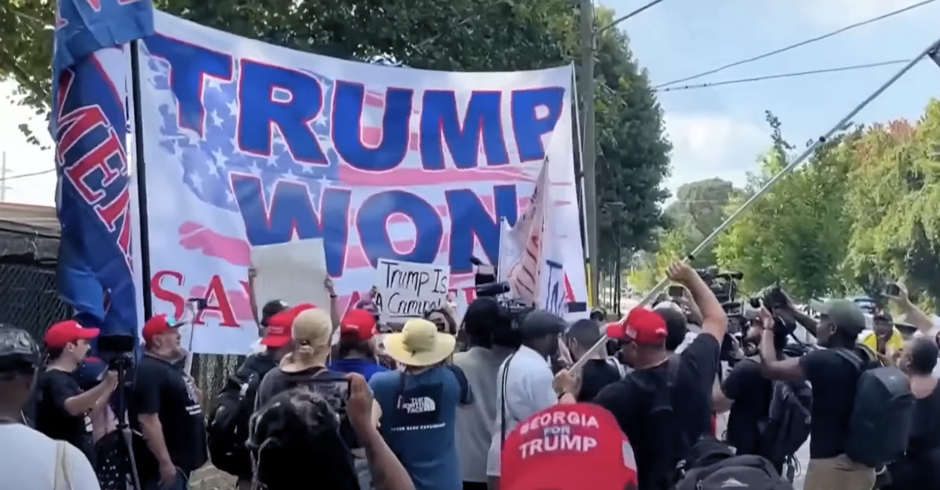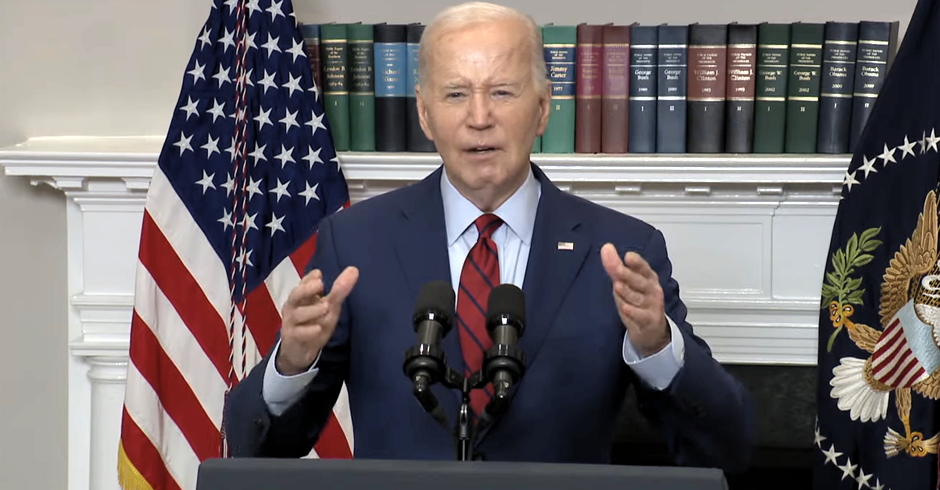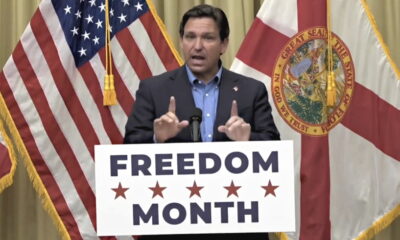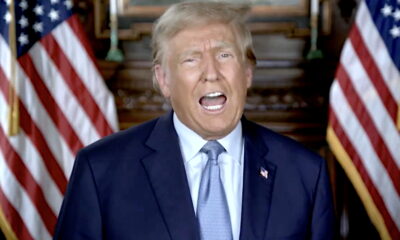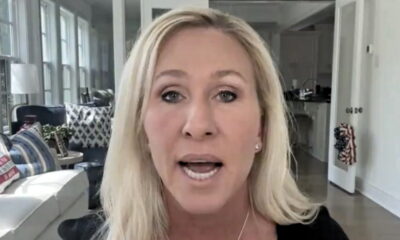Spilled Milk: Name Calling Is For Morons… You Giant Loser Dork
This post is the twelfth in a series of Spilled Milk columns by Emmy Award-winning writer and producer William Lucas Walker that chronicle his journey through parenthood. Spilled Milk, which originates in The Huffington Post, appears on these pages on Saturdays.
Â
Take this tip from my vault of tragic personal experience: If you’re a boy who’s just been surrounded by other boys on the playground and asked to name your favorite superhero, never say it’s a toss-up between Batgirl and Doris Day.
There will be repercussions.
Name-calling, like a diamond, is forever. I probably haven’t been called a sissy since middle school, but decades later, just seeing the word in print can still make me flinch. The first time it happened, I was 5 and had decided it might be fun to try out the miniature, kid-sized kitchen in my kindergarten. I dug around in a cabinet, found a small plastic frying pan and was starting to rustle up some pretend eggs for my imaginary family when I first heard the word, hissed by a couple of girls.
At first, I thought they were playing along with me, making sizzling noises to render my egg-frying sound more realistic. Until I realized that no, they were hissing a word: “Sisssssssyyy. Sisssssssyyy.” It wasn’t a word I’d ever heard before and I had no idea what it meant.
Not that it mattered. When words become weapons, even in the mouths of 5-year-olds, meaning doesn’t matter. Define nimrod. You can’t. It’s the method of deployment — malignant ridicule — that inflates these words with their poison-gas power. Though I quickly learned the particulars of my own personal label, in that first, horrible, make-believe kitchen moment, when the laughter and pointing began, I wanted nothing more than to crawl into the plywood refrigerator and shut the door behind me. Which I did, standing in the dark trying to figure out what I’d done wrong.
It was at this point that the string on my pal Mandy Crawford’s necklace broke, sending a boatload of love beads clattering to the floor. Everyone in class began whooping and laughing, except Mandy, who was mortified. Not, perhaps, as mortified as the day I mistook her plastic tampon case for a toothbrush holder, pulled it from her purse and waved it in the air, asking why anyone would bring a toothbrush to school. An honest, awful mistake I tried to make right by flying from my desk and chasing after the beads, down the aisles and under desks. Miss Hair brought everything to a screeching halt by shouting, “Get back in your seat, Bill Walker. This instant! You’re nothing but a sissy boy. AÂ sissy little boy!”
That’s when the laughter really exploded, my private shame given the ultimate stamp of approval by an authority figure who clearly relished her mission of molding young minds. This was around the time instant coffee commercials were touting a new process called freeze-drying. I don’t understand how the process works on Sanka, but I can tell you that all it takes is one English teacher to freeze-dry a soul. If you’re still alive, Miss Hair, guess what? Ever since that day, I’ve never missed an opportunity to split as many infinitives as possible. Just to really get back at you.
Sissy was the balloon that exploded in my face for years. For others it was fat, stupid, spazz, geek, lazy, poor, stinky, braceface, nappy, loser, dummy, skinny, retard, ugly. Words that have a tendency to grow into nastier language with age. A bully’s quiver contains an endless supply of interchangeable arrows with the same goal — to pierce a human heart.
As a parent, I was distressed to learn that name-calling does not skip generations. Both my kids have been on the receiving end, as well as the giving (mostly to each other). As a boy who grew up with only brothers, it took me a while to catch on to just how unlovely some girls can be to each other. I learned through my daughter that sometimes the loudest name-calling is silent.
I refer to this particular brand of bullying as “passive-recessive” since it’s so stealth, but like regular bullying, typically occurs at recess. When Elizabeth was in fifth grade, she and her best friend Audra got absorbed into a larger group of girls. My very social daughter was thrilled to expand her circle, so I decided to be thrilled for her. Until she mentioned the leader of this group, a girl named Mavis.
I could actually hear the chains clanking as a red flag shot up the pole.
“Um, isn’t Mavis that girl you told me about a few years ago? The one you said you never wanted to be friends with because she lied all the time?”
“…No.”
“She’s not the one who told everybody in second grade her parents gave her a car for her seventh birthday?”
“…No.”
“She’s not the one you said was mean to her friends and told people her mother was a movie star and only wore medical scrubs so no one would recognize her?”
Long pause. Elizabeth admitted that yes, it was the same girl. But she insisted Mavis was different now. She was nice, she was cool. And she wanted Elizabeth and Audra to join her group. My daughter has never been a follower, so I wondered how this was going to turn out.
Not so bad, at first. Apparently, they talked a lot about boys, a new development. Who was cute, which boys might like them back. They all joined a cheerleading class together after school. They spent their lunch break working up routines for the inevitable audition that would land them on The X Factor.
And then one day it was over. For my daughter at least. She was out, ejected, exiled. With no explanation. I picked her up from school one day and found her in tears, which had never happened. She told me she’d arrived that morning and approached her friends as usual, only to have Not-A-Movie-Star’s-Daughter stage whisper, “Here she comes; let’s ditch her.” All four girls, including her former BFF Audra, turned on their heels and walked in the opposite direction. Later, at lunch, when Elizabeth approached the group’s table, on a silent signal from the girl who’d been driving since she was 7, all four silently got up and moved to a different table.
This went on for a week; my daughter was distraught.
“What can I do, Daddy? I asked Mavis why I was out of the group. All she says is I’m a crybaby.”
I found this baffling. “You’re not a crybaby. You never cry,” I said. It’s true; Elizabeth’s never been a big leaker. Or hadn’t been until that week.
“I do now. I haven’t been able to stop since they kicked me out.”
I suddenly remembered something Elizabeth had mentioned a couple of weeks earlier. About a boy who’d come up and started talking to her on the playground. A boy Mavis had a crush on. Elizabeth said she’d gotten a funny look from Mavis, but they ended up laughing about it. I asked my daughter if she thought this might have had something to do with the the Big Mavis Freeze-Out.
“No. That’s just silly. I don’t even like Roscoe. She knows that. I mean he’s nice, but I don’t like him. I like Judah.”
Apparently it wasn’t so silly to Mavis. I can’t claim ever to have been a fifth-grade girl, but I’m pretty sure Roscoe was the beginning of the end.
For about another week my daughter, who’d always radiated confidence, looked sad and shaken when I would pick her up from school.
“I don’t know what I did, Daddy. I just want to get back in the group.”
“Let’s think about this,” I said. “Why would you want back in a group of girls who’d treat you like that?”
“Because I just want them to like me again.”
“Do you still like them?” I didn’t. “What if you were still in the group and Mavis told you to ditch Audra or one of the other girls? Would you do it?”
“No.”
“Then you don’t belong in that group.”
She must have come to the same conclusion, because in a couple of weeks she had a new BFF and never mentioned Mavis again. A year later, at a new school, my daughter reports that the entire Mavis posse is now defunct. A couple of the girls are friendly with my daughter again. She says they’ve apologized and told her they were scared of Mavis, afraid that if they’d taken my daughter’s side last year, they’d have been shunned from the group too.
There will always be Mavises. And Miss Hairs. And boys who ostracize other boys for liking Batgirl and Doris Day. And boys who mistake tampon cases for toothbrush holders and wave them in the air, making themselves accidental bullies, but to the mortified Mandys of the world, bullies nonetheless.
National No Name-Calling Week was held last month at many schools across the United States. I say many because lots of schools have never heard of it and even if they have, participation is voluntary. Since introducing it four years ago at my children’s school, I’ve become convinced No Name-Calling Week should be mandatory, like flushing or pizza day.
I’ve also discovered something surprising: I wasn’t alone. And neither were you. If you take a moment and ask any adult you know whether they were ever called a name growing up, they will say yes.
In four years, I haven’t met anyone who hasn’t. The deeper the wound, the more details they’ll provide. Like me, chances are they can tell you what grade they were in, where it happened, the time of day and whether it was sunny or snowing. The exact words used, whether they were shouted or whispered, the expression on the perpetrator’s face — the sound of the laugher, the shape of the sneer. Lodged in all this ancient scar tissue will be the diamond-bright, nuclear core of the wound — what it cost them. Whether their emotional response was humiliation, anger, depression, fear, defiant laughter or bewilderment, if you ask, they’ll probably admit they also felt isolated. Alone. Exclusion is the cold, ugly trophy intended for every victim of bullying; the engraving is free: “We don’t like you.”
“Has anybody ever called you a name?”
This is usually my opening question when I speak to classes at my children’s school. About a third to half of the kids typically raise their hands. When I add, “Siblings count!” the remaining arms shoot up like erupting corn stalks in a time-lapse farming documentary. Which makes me feel good about the conclusion I’d arrived at by the age of 6 — that most siblings belong in jail.
Every now and then, there’ll be one kid who still won’t raise her hand. Knowing what I know now, I have no choice but to assume that she is deaf, has lost both arms or is a recent transfer from Stepford Elementary. In one case, I could tell from the boy’s smirk alone that he wasn’t deaf, armless or reanimated. He was trying to game the system. And make me look bad. I was tempted to call him a liar, raising my stats to 100% and beating him at his own game. But that would have made me Miss Hair. And as my husband Kelly hinted, possibly damaged my credibility as facilitator of No Name-Calling Week.
If you’re a parent and your kids’ school doesn’t observe No Name-Calling Week, go to nonamecallingweek.org and learn how to set it up for next year. Cost is minimal; there are free lesson plans teachers can easily incorporate into their teaching, as well as reading lists for students. If your school says they’re too busy, see if they’ll let you get together with other parents and sponsor events yourselves.
The rewards will astound you. At our school No Name-Calling Week has provided a platform for students to stand in front of their peers and share what it feels like to be the new kid at school, or teased for being plump, short or eating the food of their native culture. Our daughter has spoken about what it’s like to hear someone joking “That’s so gay!” and feel it’s her parents being insulted. A boy with a severely disabled sister talked about flinching every time someone throws out the word “retarded.” An adopted African-American girl shared how it feels to have people question why she doesn’t look like her white parents. Usually, you can hear a pin drop. For every child who’s had the courage to make his or her feelings known the experience has been overwhelmingly positive.
The Creative Expression element of No Name-Calling Week has been particularly popular at our school, giving students the chance to funnel their feelings about bullying and name-calling into poems, graphic novels, paintings, sculptures, dioramas, murals, short films and songs. Often, for the first time in their lives, they have the opportunity to turn painful situations they’ve witnessed or experienced into art that can be shared and discussed with parents and peers.
Whether or not your school observes No Name-Calling Week, an effective way to get your kids thinking about the impact of bullying, name-calling and the power of kind words is to begin talking with them at home.
Being the victim of name-calling, especially at a young age, typically results in feelings of isolation. Feelings some children won’t share with their parents unprompted. Lead the way. An effective tool can be bringing up the topics of name-calling and bullying at dinner or bedtime. Share with your children any memories you have of being called names as a child. It rarely occurs to children that the grown-ups in their lives might have suffered the same feelings that can come with a thoughtless word.
Martin Luther King, Jr., whose birthday we celebrated last month, was called more ugly names than any of us can imagine. He responded with an example of love, kindness, peace and generosity of spirit that shamed his tormentors and changed a nation.
Kindness is key. We all remember being called a name somewhere, perhaps many wheres, along the road. Don’t forget to mention those well-timed acts of kindness, the random generosities, that changed the course of your life as well.
All good stuff to talk about.
So. No Name-Calling Week is upon us. Last year, I recall mentioning to my first-grader that it would be here soon. His eyes lit up with a devious glare. “So Daddy, does that mean this is Name-Calling Week?”
“No, no, that’s not what it means at all–”
“Because I think. You… are… a… (long pause, deep thought) Preposterous PortaPotty!”
That one I didn’t mind.
 William Lucas Walker is an Emmy Award-winning writer and producer whose television credits include Frasier, Will & Grace and Roseanne. He co-created the critically-acclaimed Showtime comedy The Chris Isaak Show. Bill and his husband Kelly are the parents of Elizabeth and James, born in 2001 and 2005. The children were gratified by the legal marriage of their parents in 2008, an event that rescued them from a life of ruinous bastardry.
William Lucas Walker is an Emmy Award-winning writer and producer whose television credits include Frasier, Will & Grace and Roseanne. He co-created the critically-acclaimed Showtime comedy The Chris Isaak Show. Bill and his husband Kelly are the parents of Elizabeth and James, born in 2001 and 2005. The children were gratified by the legal marriage of their parents in 2008, an event that rescued them from a life of ruinous bastardry.
Spilled Milk chronicles Bill’s misadventures in Daddyland. The first recurring humor column by a gay parent to appear in a mainstream American publication, Spilled Milk has regularly landed on the front page of The Huffington Post.
Follow William Lucas Walker on Twitter: @WmLucasWalker, @SpilledMilkWLW or Facebook: “Spilled Milk” by William Lucas Walker. Â Â Â Â

Enjoy this piece?
… then let us make a small request. The New Civil Rights Movement depends on readers like you to meet our ongoing expenses and continue producing quality progressive journalism. Three Silicon Valley giants consume 70 percent of all online advertising dollars, so we need your help to continue doing what we do.
NCRM is independent. You won’t find mainstream media bias here. From unflinching coverage of religious extremism, to spotlighting efforts to roll back our rights, NCRM continues to speak truth to power. America needs independent voices like NCRM to be sure no one is forgotten.
Every reader contribution, whatever the amount, makes a tremendous difference. Help ensure NCRM remains independent long into the future. Support progressive journalism with a one-time contribution to NCRM, or click here to become a subscriber. Thank you. Click here to donate by check.
 |



